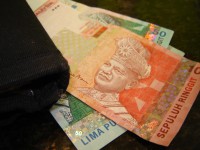Malaysia, Thailand, China have biggest rise in household debt
A report by the Institute of International Finance (IIF) showed an estimated US$6.2 trillion jump in emerging market household debt due to rising problem loans and slowing economic growth. The IIF estimated that combined global household debt was now more than $44 trillion. The three biggest rises in the household debt-to-GDP gap were in Thailand, Malaysia and China. In Malaysia, the debt ratio is much higher at over 145%, with house prices risen by around 75% since 2007. In China, household debt to income levels have increased from 35% to 60% since 2007, while Thailand has risen 28% since early 2008. “Malaysia’s household sector appears quite vulnerable to what could shape up as a perfect storm,” the IIF said citing, “weakening growth, rising interest rates to defend the depreciating ringgit and a possible correction in house prices.” (The Star Online)
Kedah first to implement Rural House Rental Aid programme
Kedah is the first state in Malaysia to implement the Rural House Rental Aid programme (BSRLB) with an allocation of RM1 million, beginning Nov 1, which will benefit 555 heads of households. The aid amount is subject to the rental amount of the house to be rented or a maximum of RM150 per month. According to state executive councillor in charge Datuk Mohd Tajudin Abdullah, the programme will help to lighten the burden of poor families to rent safe and suitable homes, and also help rural folks who are not eligible for the Housing Aid Programme (PBR). People who wanted to apply for the aid must be endorsed by the District Poverty Eradication Focus Group. (Bernama)
Penang Chinese Chamber willing to build RM150,000 houses
The Penang Chinese Chamber of Commerce (PCCC) says it is willing to build the proposed new category of RM150,000 affordable housing units if the state government offers sufficient incentives. Its committee lauded the recent revision to introduce the new category, as it comes with allowance to increase the density. The move will help the lower income group as allocation for housing below RM200,000 has been increased. In order to provide more low cost and low middle cost units, the state government should increase the permitted development density for LMC units, and reduce the time taken for purchase approvals and reduce the requirements for common facilities and car parks. (Malaysian Digest)
Yong Tai to dispose Batu Pahat land for RM1.3mil
Textile and garment retailer and trader Yong Tai Bhd is disposing a 21,775 sq ft parcel of leasehold land in Batu Pahat, Johor to Teo Hock Chuan for RM1.3 million. The land comes with one unit of single-storey warehouse. It said the disposal offers an opportunity to unlock the value of its investment, and that the exercise is in line with its strategy to focus on its property development segment. From the proceeds of the sale, RM700,000 will be used to repay bank borrowings, RM540,000 for working capital and RM60,000 for the disposal expenses. (The Edge Markets)
Serviced apartments to get public facilities
The formation of two planning guidelines (GPP), namely the Serviced Apartment GPP, and Mixed-Use Development GPP, will see serviced apartment occupants have access to public facilities like those found in other housing areas. At present, the policy on the development of serviced apartments are different at state and local authority levels, as it was not subject to the terms and conditions of normal housing developments which have public facilities and control on sales prices. Buyers are usually not aware of the high cost of living in a serviced apartment, which is built on commercial land and thus subject to higher utility and tax rates. The implementation of serviced apartment projects should be reviewed as it had mushroomed and become a lifestyle trend. (The Malay Mail Online)
PRG to diversify into construction segment
PRG Holdings Bhd, formerly Furniweb Industrial Projects Bhd, is planning to diversity its core business to include construction, which is estimated to contribute 25% or more to its net profit. The construction division of the group currently operates under Premier Construction Sdn Bhd. The proposed diversification will complement the group’s existing business in property development. In July 2014, the company had undertaken a RM50.15 million residential development in Ipoh, Perak which is said to be progressing ahead of schedule. (The Edge Markets)
Vietnam keen to emulate Malaysia bond market
Vietnam is interested to emulate Malaysia’s model in developing the bond market to fund its growing economy and long-term infrastructure funds, said Vietnam Bond Market Association (VBMA) General Secretary, Do Ngoc Quynh. Vietnam has been relying on bank financing, but it needs to further establish its debt market as banks face capital limits. Quynh noted that Malaysia is currently the best in the region in terms of bond market size relative to GDP. Vietnam’s bond market as at June 30, 2015 stood at US$43 billion, with government bonds accounting for 98.7 per cent and corporate bonds only 1.3 per cent. In contrast, the percentage ratio of Malaysia’s corporate bonds is currently about 40 per cent and government bonds around 60 per cent, and the country can rightly claim to be the global capital of sukuk (Islamic bonds) with more than 60 per cent of global sukuk issuances taking place in Malaysia. (Bernama)





